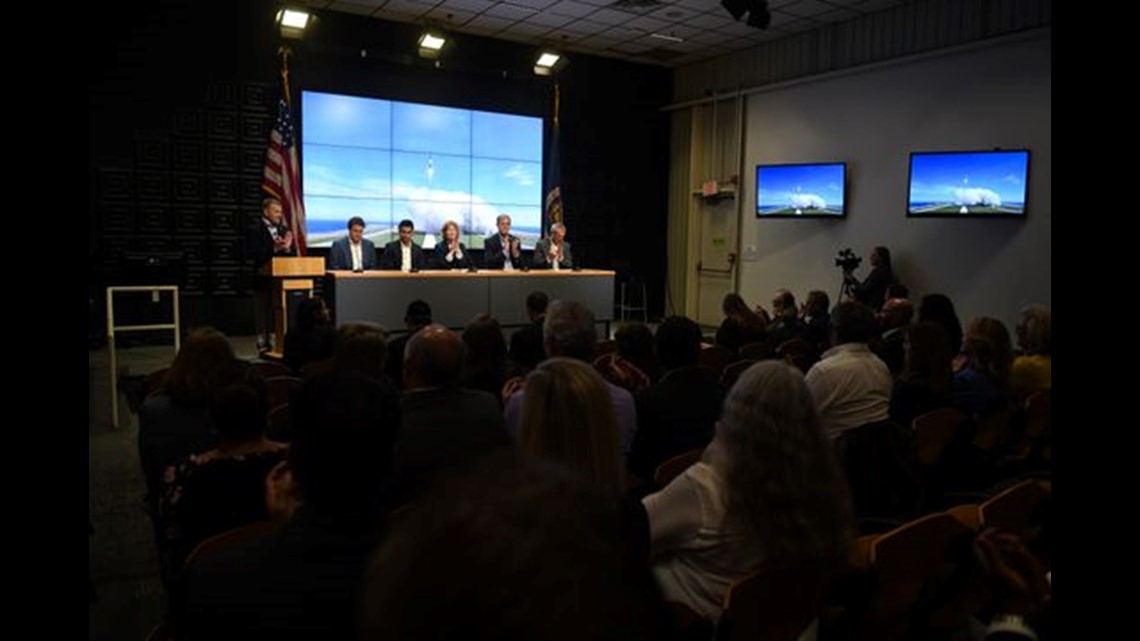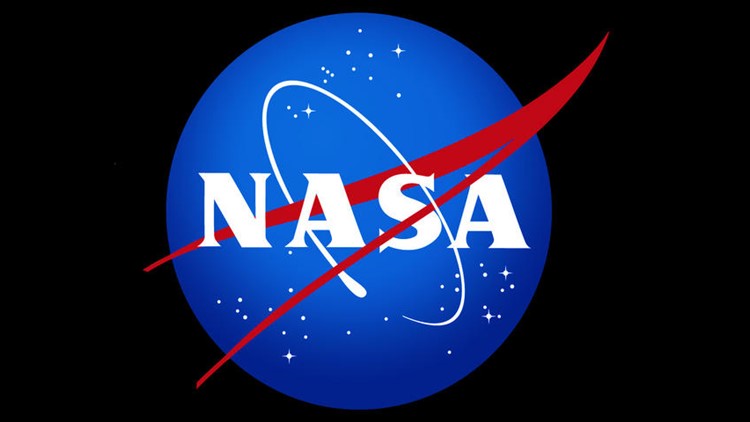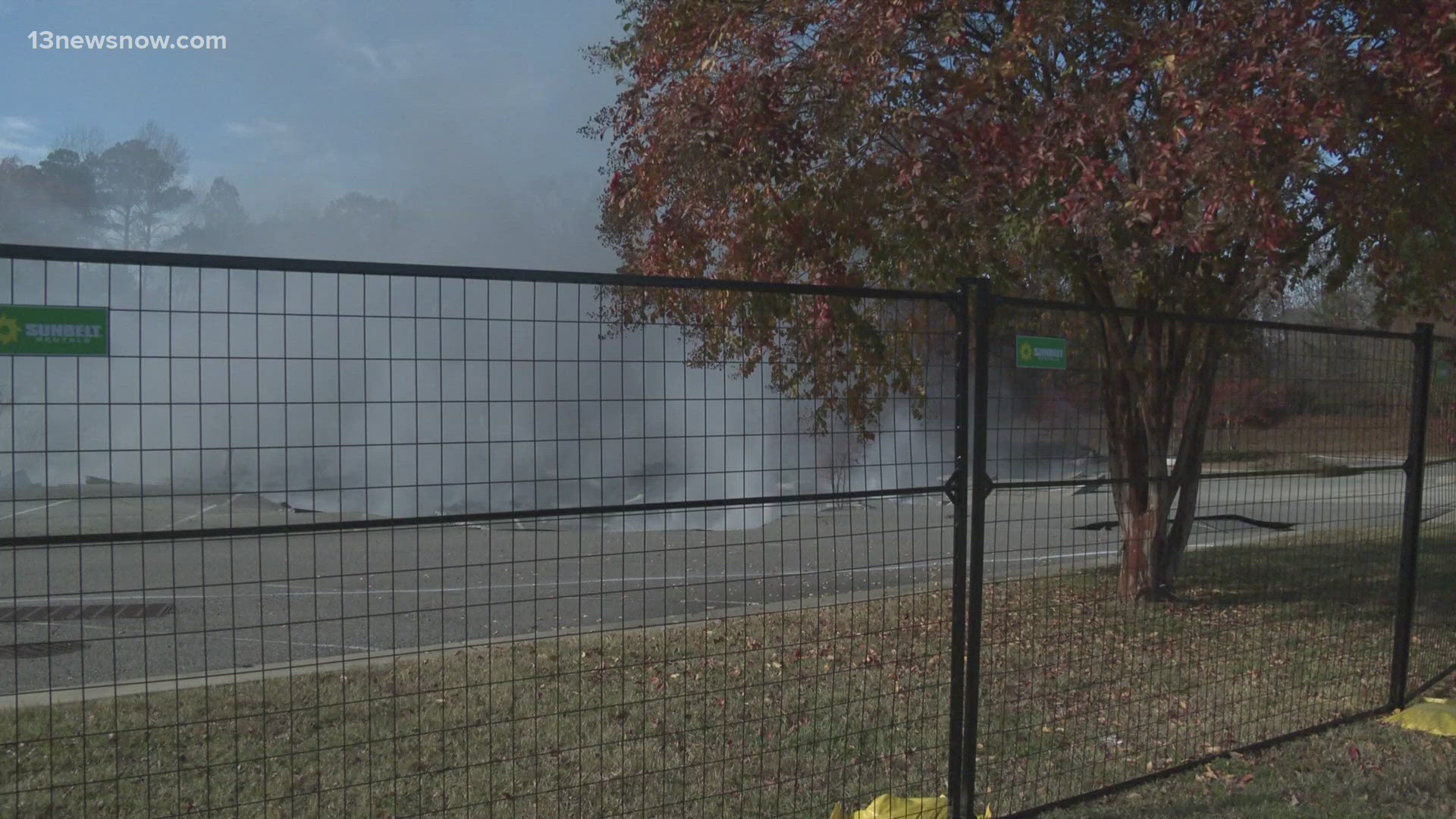Rocket Lab, a private aerospace company, announced Wednesday it would be using the Virginia Space Mid-Atlantic Spaceport for its first U.S. launch site.
The company broke ground Wednesday on Launch Complex 2, from which it plans to one day launch one rocket a month. Officials said the first launch is scheduled for the third quarter of 2019.
LC-2 will be located on the southern portion of NASA's Wallops Island. Launch Complex 1, the company's first launch facility, is located on the Māhia Peninsula in New Zealand. Rocket Lab's headquarters are based in Huntington Beach, California.
Wallops Flight Facility was one of four spaceports shortlisted for the launch site. Wallops ultimately beat out Cape Canaveral in Florida, the Pacific Spaceport Complex – Alaska and the Vandenberg Air Force Base in California, in part because the surrounding area is quiet, Wallops already had much of the necessary team and infrastructure in place, and the complex could be built on the company's timeline.
The new complex will create as many as 30 new "highly skilled" jobs in the area, Shaun D'Mello, vice president of launch for Rocket Lab, said.
Peter Beck, the founder and CEO of Rocket Lab, said Launch Complex 2 would be a "boutique pad" for customers interested in staying in the United States rather than traveling to New Zealand.
"Wallops met our immediate needs," Beck said. "It's always been our plan to build many (launch pads), but this one will help reach those customers in the United States much more easily."


Beck said that he foresaw more American launch pads in the future, but Wallops best met the needs of the company now. The eventual goal is to provide customers with additional launch sites in the US and internationally to provide additional launch flexibility for small satellite customers, including a future Launch Complex near the equator.
Rocket Lab will work with Virginia Space to construct dedicated pad infrastructure at the site. The eventual goal is to use the pad to launch its Electron rockets, 57-foot rockets that can launch about 500 pounds of payload into orbit.
The company will also develop a Launch Vehicle Integration and Assembly Facility in the Wallops Research Park. The facility will also contain a control room with connectivity to LC-2, as well as dedicated customer facilities.
The new facility will be largely similar to LC-1, executives said, although there will be some small modifications. D'Mello said the two pads would also be philosophically similar.
"There are a lot of scopes of improvement with the operations and maintenance, so we'll be focusing a little bit on that with lessons learned," D'Mello said "We've already taken a few reviews and incorporated that into our new design packages."
Officials from Wallops said they were excited the facility was chosen for Rocket Lab's first American launch pad, pointing out a number of notable partners Wallops already has, including the Navy and NOAA.
"We've truly built (Wallops) into a unique toolbox that the whole country can use," Bill Wrobel, director of NASA Wallops, said.
Wrobel went on to say that Wallops has hosted many commercial companies in the past and that Rocket Lab's technologies would serve as a nice complement to Wallops' capabilities.
Officials would not share specifically the incentives provided to Rocket Lab to bring the complex to Virginia, saying the exact amount was part of the proprietary agreement between government agencies and the company.
Despite that, Virginia Secretary of Transportation Shannon Valentine said she received word Tuesday night that Va. Gov. Ralph Northam had signed a $5 million Transportation Partnership Opportunity Fund grant, which would support the partnership.
Nash said there were economic incentives given but that it was important to consider the "in-kind expertise" from Rocket Lab in the form of project management from employees that don't have to relocate to Virginia.



